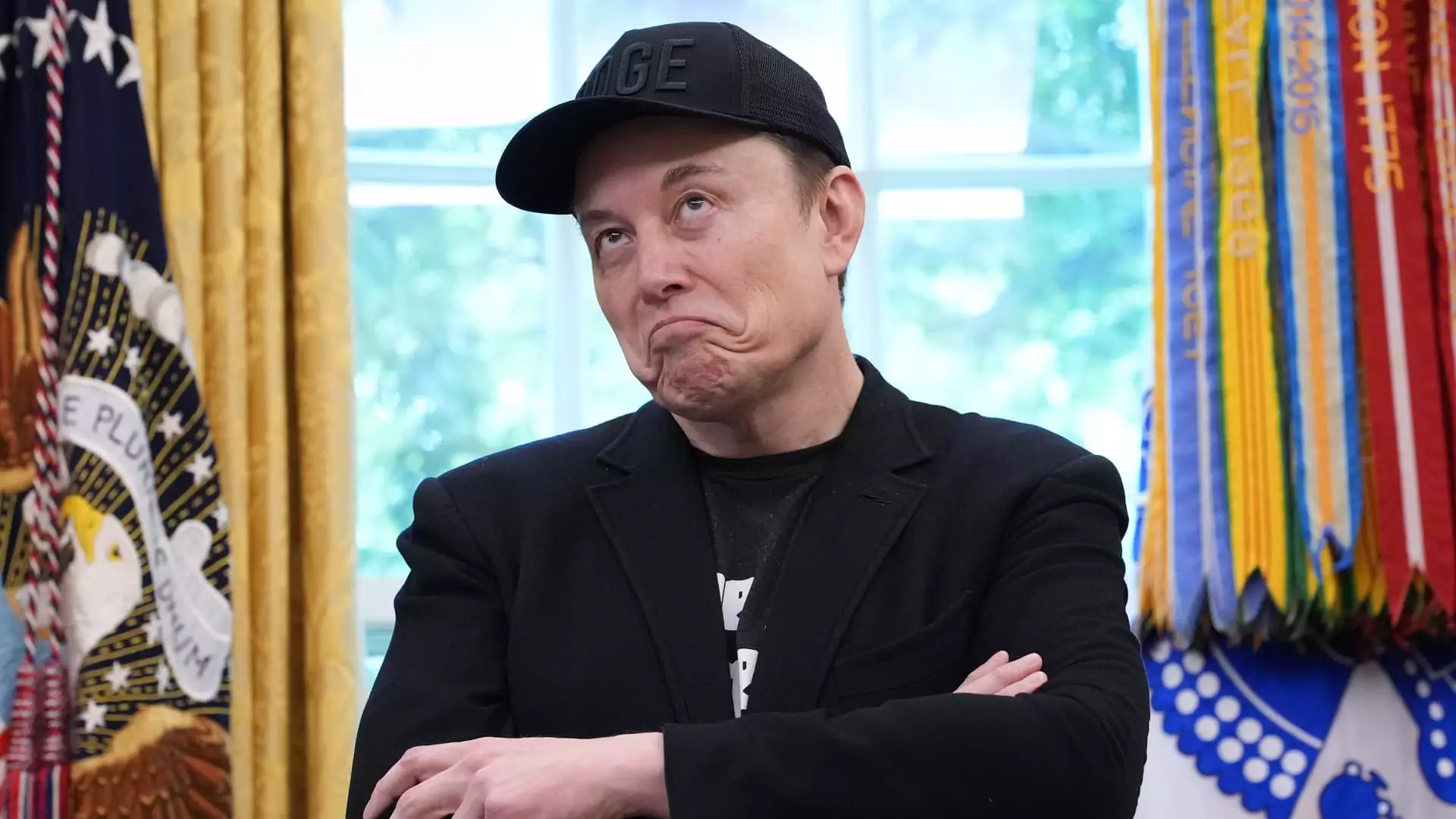The recent legislative development has laid bare a dangerous reality: the persistent prioritization of political expediency over genuine fiscal responsibility. The so-called “One Big Beautiful Bill” crashes through with a veneer of economic confidence, yet behind the curtain, it reveals a reckless disregard for long-term stability. When executives like Elon Musk criticize such spending packages, it underscores a critical, albeit often overlooked, tension: the private sector’s stake in sustainable government policy. Musk’s vocal opposition to increased deficits highlights a rare intersection of corporate interest and fiscal oversight, but it’s insufficient to offset the avalanche of debt that risks destabilizing future generations.
The bill’s provisions—massive tax cuts intertwined with increased spending—are emblematic of a nearly carnival-like approach to economics. Rather than fostering growth, these policies risk deepening debt burdens, as warned by independent analysts. The Congressional Budget Office estimates billions of dollars in additional debt, yet political leaders dismiss these warnings as partisan propaganda. This dismissiveness underscores a troubling pattern: decisions driven by immediate political gains rather than pragmatic financial management. As private industry grapples with the unpredictability of such policies, economic stability inches further from reachable horizons, threatening to turn fiscal irresponsibility into a perennial crisis.
The Corporate Voice as a Catalyst for Responsible Policy—Or a Symptom of Influence?
Elon Musk’s outspoken criticism—calling the bill a “DEBT SLAVERY bill”—is unprecedented for a CEO and signals a shift in the corporate voice. Historically, business leaders have maintained a cautious silence on fiscal policies, wary of political retaliation and market backlash. Musk’s openness suggests a growing awareness: that unchecked government spending undermines the very entrepreneurial incentives that drive American innovation. Yet, this stance also raises questions about the influence of powerful corporate interests in shaping policy debates. Are these criticisms genuine calls for responsible government, or calculated moves to protect business privileges and subsidies?
Furthermore, the clash over electric vehicle support exposes a fragile alliance between industry and government. Musk’s companies depend heavily on government incentives—tax credits, energy mandates, and supportive policy environments. When these are threatened, corporate voices become louder—and more politically charged. While this may serve as a check against reckless spending, it also risks turning policy disputes into corporate power plays, diluting accountability and making economic reform more contentious. In this context, it’s easy to view Musk’s critique as both principled and strategic, reflective of a broader struggle to preserve a balanced and sustainable economic future.
The Political Game: Short-Term Wins Versus Long-Term Wisdom
The passage of the bill, narrowly approved by the House, underscores how political actors prioritize immediate leverage over genuine policy quality. Passage through narrow margins illustrates a deeply divided Congress, increasingly trapped in partisan games rather than forward-looking governance. The immediate benefits—tax cuts and increased spending—appeal to certain constituencies, but they come at a cost. The long-term repercussions, notably soaring debt, threaten to impose financial burdens on future Americans, transforming economic growth into a perilous gamble.
This cycle of short-termism breeds a dangerous precedent. Politicians, incentivized by reelection pressures, often eschew fiscal discipline. Meanwhile, corporate leaders grow frustrated, sensing that actual economic sustainability takes a backseat to political posturing. Musk’s criticisms tap into a broader narrative: that the nation’s political class has lost sight of prudent stewardship, instead engaging in populist policies that undermine America’s economic foundation. While some laud this as core liberalism emphasizing responsible governance, it undeniably reveals a pervasive tendency towards shortsighted policy that could jeopardize generations to come.
In the end, the confluence of political expediency and corporate influence risks transforming America’s economic trajectory into a precarious balancing act—one that favors immediate gains at the expense of enduring stability. It’s a dynamic that demands sharper scrutiny and a reorientation toward policies that truly serve the nation’s long-term interests.

